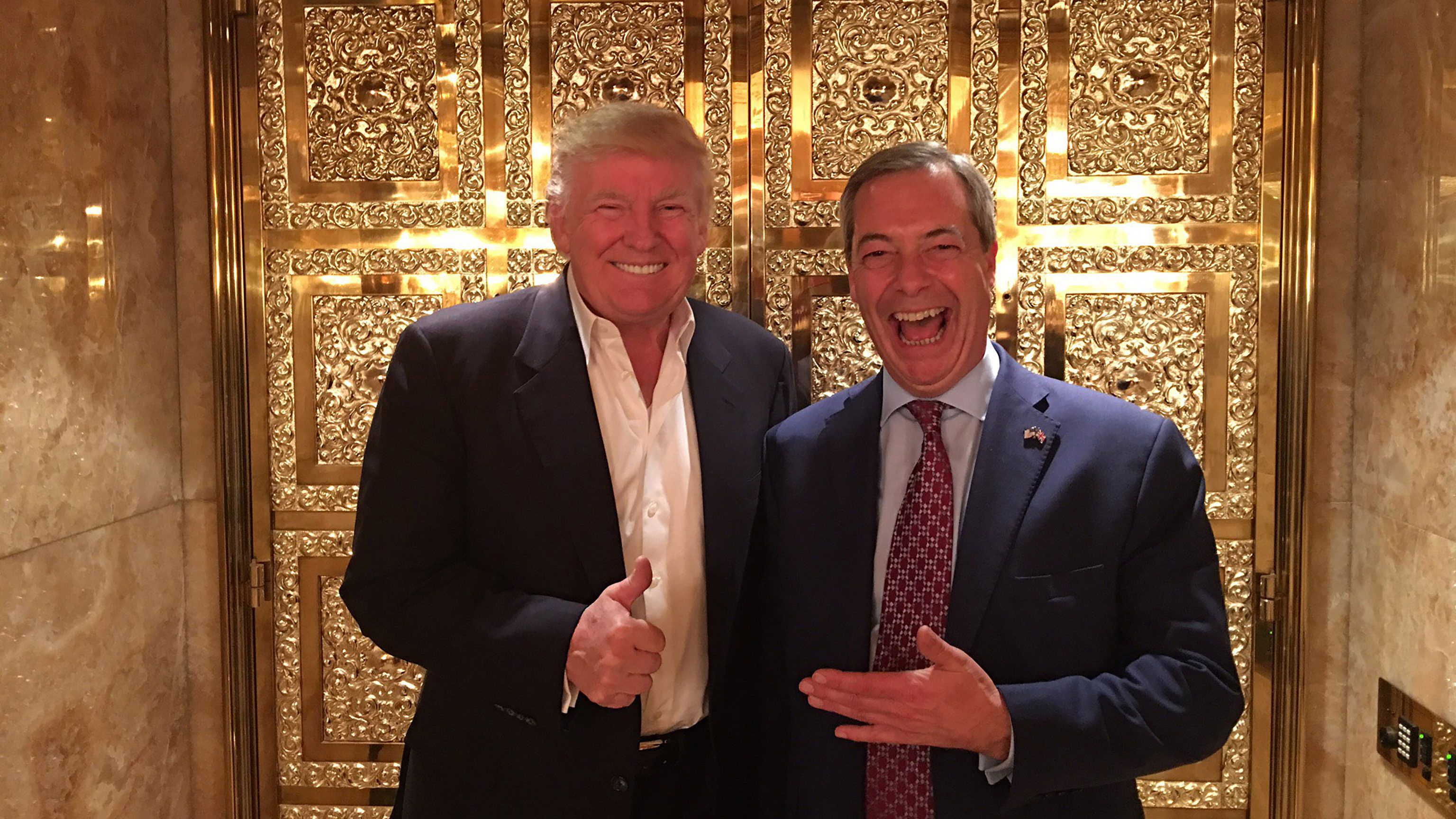Yes – Rory Claydon
After the results of this election seeing Donald Trump being swept into the White House, I can say that it would be in Britain’s best interests to keep a good working relationship up with the new President-elect, after all the special relationship we have with the United States gives us much more sway on the international stage than what we would have without such a partnership.
As Farage said in response to the knee-jerk riposte from Downing Street on the topic of becoming ambassador: “The world has changed. People need to face up to this.”
As he stated, 2016 has been a very surreal year in politics – with Trumps victory, rising nationalism in Western Europe and Brexit completely changing the political make-up of the western world, Downing Street still reflects the old attitudes that have dominated political discourse for the past few decades.
Indeed, Theresa May was recently criticised by her own ministers for her “terrible handling” of Britain’s response to Trumps victory. The lack of any sort of response from her administration has left officials in a major state of confusion – which leads me to see why Donald Trump hasn’t yet met with Theresa May despite meeting up with many others, including the Japanese Prime Minister and the Irish Taoiseach.
Our special relationship therefore looks like it is in peril – the lukewarm attitude towards Trump’s victory threatens the current UK-US connection, the ripples from that could be felt from this could reduce our place on the world stage.
Which is why Farage would be an excellent choice, he already has a personal friendship with the President-elect, and knows many people on his team as well. The position Farage is in would help British interests in America greatly.
Farage himself said “I would do anything to help our national interest and to help cement ties with the incoming Anglophile administration.” And indeed, his tireless campaigning throughout the Brexit campaign and indeed during the U.S election shows that, at the very least, he stands up strongly for what he believes in. This attitude combined with the fact he is closer to the movers-and-shakers in the U.S government than any British official would be immensely valuable.
However, many MP’s and even some figures in Downing Street have been openly hostile to Trump both before his victory and after it. Few have come out to accept his success and extended a welcoming hand to the future President. This cold approach borders on hostile, but Farage, a man who knows not only Trump but many others that will no doubt hold positions in the U.S government would solve this if he became ambassador.
As he said, the world has changed – and Farage has adapted to the ever-changing political landscape time and time again. For this, if Britain wants to continue a healthy working relationship with America, then it is without a doubt that he would be a safe choice for both Downing Street and Washington.
No – Alex Passingham
Since Trump’s victory, governments throughout Europe have wrestled with how best to deal with the man who, against most of their preferences, will lead the free world for at least four years. Their difficulties are often compounded by the fact that many of them have, understandably, made disparaging remarks about Trump when he was an obscure primary candidate who we all assumed would talk himself out of the running (those were the days). Theresa May, then Home Secretary, said he was ‘absolutely wrong’ in his comments about British Muslims’ relationship with the police. Understandably, therefore, the necessity of building a working relationship with the President-elect will not be easy for the British government. However, to argue Nigel Farage is the answer to this difficulty is to fundamentally misunderstand the problem.
Many have argued that, because of Farage and Trump’s close friendship, the acting UKIP leader is a natural go-between in the UK government’s talks with Trump. Firstly, it is by no means clear that Farage’s wide eyed enthusiasm for Trump is mutual. In the now famous picture of the two men outside a golden lift Farage looks less like a serious negotiator and more like a grinning child meeting their favourite football player or pop star. This is far from the image Britain wishes to project abroad. Furthermore, to use Farage in this way would simply suggest to Trump that Britain shares some of his potentially dangerous foreign policy positions, most worryingly his fondness for President Putin which threatens the NATO alliance on which western security has been founded since the end of the Second World War.
Would it not cheapen the prestige of the Foreign Office to give such a vital role to a man who, let us not forget, has been rejected seven times by British voters whenever he has stood for Parliament. His foreign policy experience is scant at best, while his attendance in the European Parliament is woeful (by way of example he attended one out of 42 meetings held when he was on the fisheries committee, despite UKIP campaigning heavily on the issue). Given his campaigning style, which depends on taking swipes at established authorities and ‘experts’, it is also difficult to see him taking seriously any briefings or advice which Foreign Office officials, likely to be far better qualified in foreign policy than him, might provide. This renders him a loose cannon in a field where British policy desperately needs to be consistent. A final point to bear in mind is that, while his views present challenges, Trump is far from the most difficult world leader Britain must deal with. But Britain has dealt with considerably more hostile leaders in the past, and one might find solace in the fact that Trump at least has a connection to and affinity for Britain. Certainly, he poses questions, but Nigel Farage is not the answer.
(Image courtesy of Splash News)

